'Today is the start of hate week' — Advocates decry flood of anti-transgender bills in Kansas
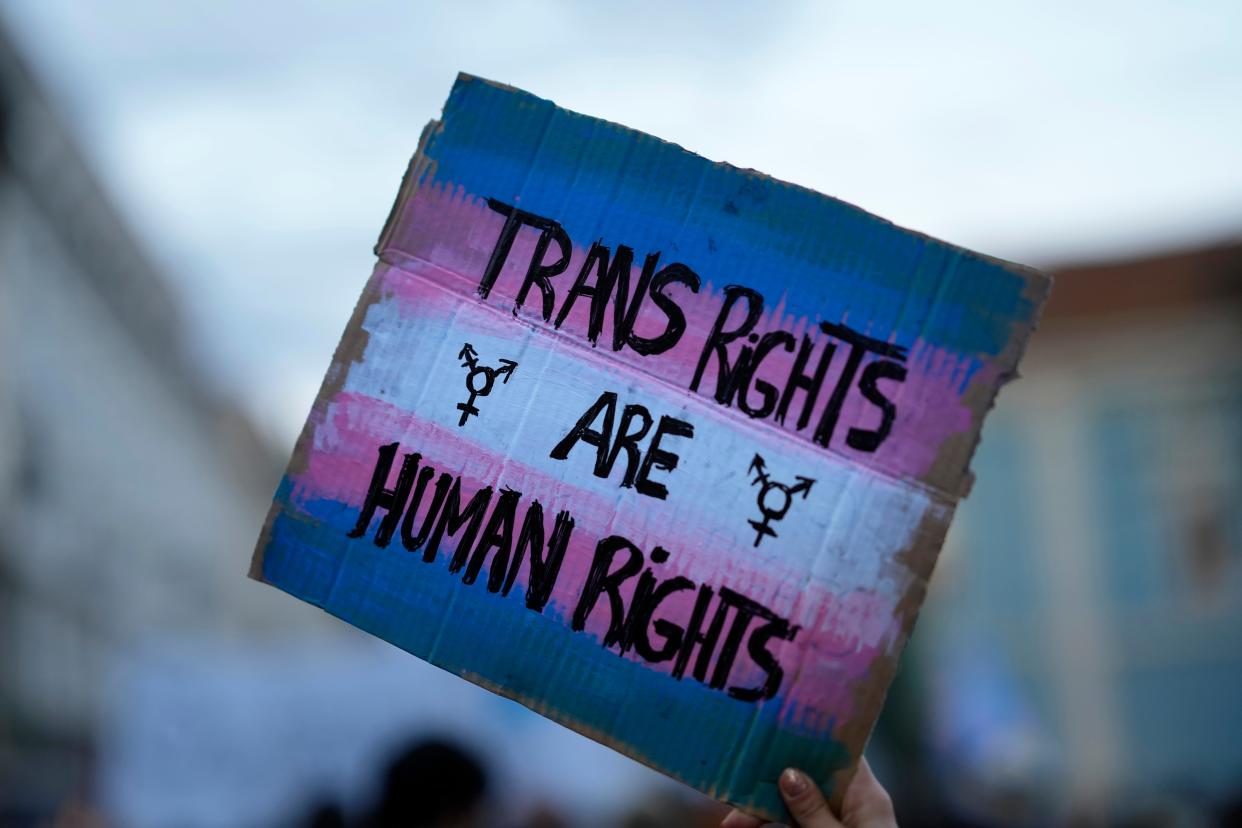
- Oops!Something went wrong.Please try again later.
- Oops!Something went wrong.Please try again later.
When Adam Kellogg first heard the name Adam, everything made sense.
Kellogg came out as transgender at age 12, and ever since "the beauty and joy of who I am has not wavered."
After consulting with his doctors, Kellogg elected to begin hormone medications that block puberty, but before heading to college, he wanted to do more to ensure he would have a more seamless transition to college life. The 19-year-old is a student at the University of Kansas.
That included taking testosterone shortly before his 17th birthday and surgery to remove his breasts after he turned 18.
The confidence Kellogg felt upon arriving on campus as his authentic self, he said, could be threatened for other youths.
Lawmakers are considering a ban on gender-affirming care for minors, which includes the procedures and therapies Kellogg and other transgender individuals say is vital to improving their health and wellbeing.
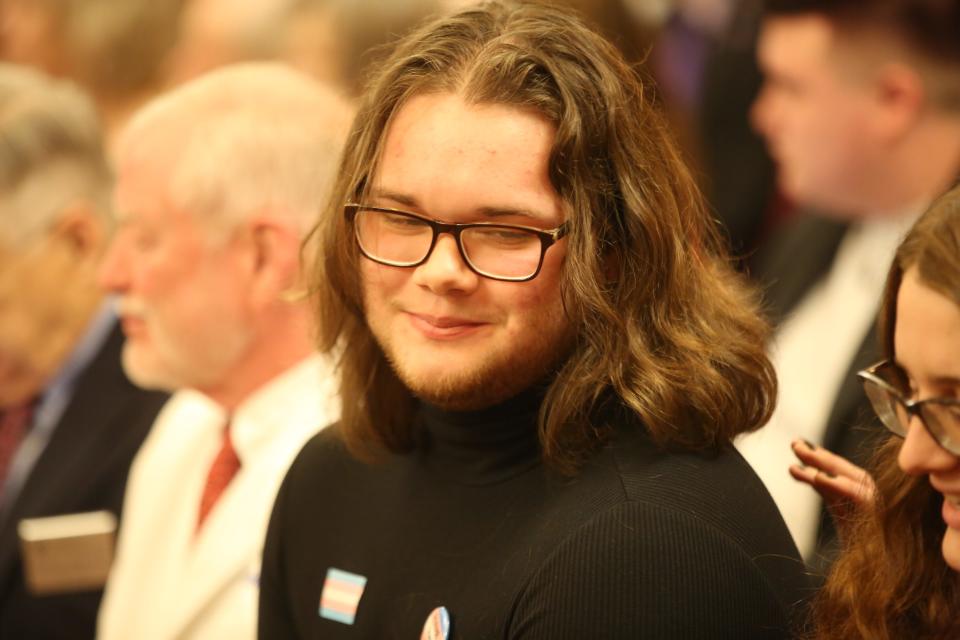
"My necessary health care is up for debate, despite all the research and endorsement from respected medical institutions that says it is critical, life-saving care for transgender youth," Kellogg told the Senate Public Health and Welfare Committee on Tuesday.
The state is no stranger to debate on transgender rights.
For two sessions in a row, Gov. Laura Kelly has vetoed a bill that would ban transgender athletes in women's sports, with Republican legislators failing to override her veto both times.
Now there is a feeling that a more conservative Legislature has more power to not just overturn a Kelly veto from that bill but also pursue a slate of even more strident policies.
"It is a growing issue across the country," said Sen. Renee Erickson, R-Wichita. "And as we see these issues come up in other states, we notice in Kansas and want to be proactive in dealing with them rather than having to be reactive."
Those bills include the ban on gender-affirming care, limits on local nondiscrimination ordinances and a so-called "women's bill of rights" that restricts state agencies from recognizing a person as anything other than their biological gender.
More:Kansas bill to criminalize transgender health care for youths. Here's what to know.
They will all be heard within the span of three days in the Statehouse.
"Today is the start of hate week," Rep. Brandon Woodard, D-Lenexa, who is openly gay, said at a news conference on Monday. "Today, yet another anti-transgender bill is up for a hearing. There's another one tomorrow and another one Wednesday — when will it end?
"The choice of the GOP to repeatedly put vulnerable children at the center of these cruel debates is reflective of their overall goal to divide and conquer, not unite and grow."
Kansas joins national trend on anti-trans bills
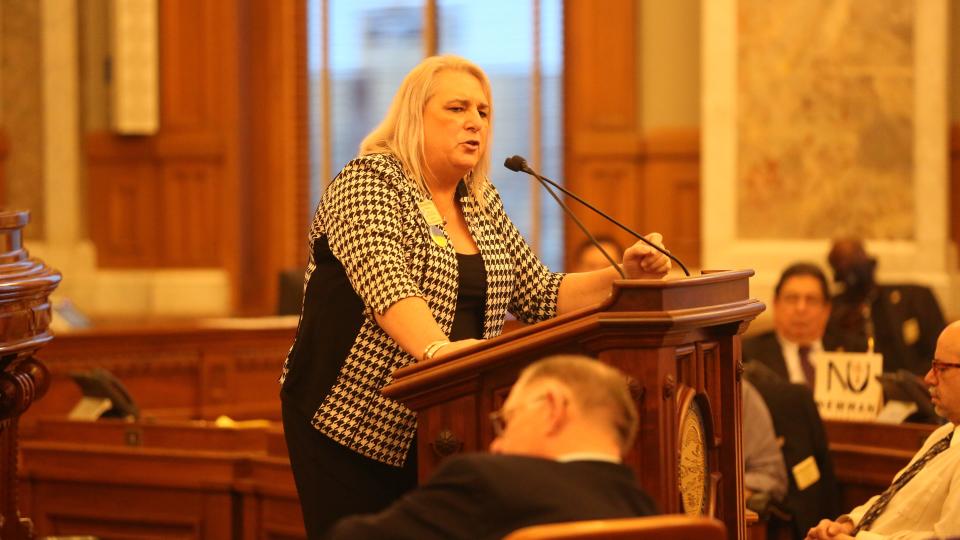
Kansas isn't alone in seeing a rise in bills designed to limit transgender rights and health care.
According to data compiled by the American Civil Liberties Union, 20 states have either voted on or held hearings on 70 pieces of legislation opposing transgender rights. That includes three of Kansas' neighboring states in Missouri, Nebraska and Oklahoma.
"I think that Kansas has a long tradition of being the state that bucks the trend," said Stephanie Byers, a former state lawmaker who was the first transgender person to serve in the Legislature. "And it's unfortunate that we're seeing them begin to conform to those same trends and ideologies that other conservative states have established."
In Kansas, transgender athletes in women's sports was a top issue in Republican Derek Schmidt's ultimately unsuccessful effort to defeat Kelly, with a half-dozen television ads on the subject over the course of the campaign.
Indeed, proponents say their top priority remains the transgender athletes ban, arguing it is an issue of fundamental fairness, arguing transgender women have a biological advantage over their cisgender counterparts.
"The only thing this bill does is keep biological boys from taking athletic opportunities from biological girls," Brittany Jones, a lobbyist with Kansas Family Voice, told the House Education Committee Monday.
The Kansas State High School Activities Association reported only two transgender youths in after-school activities this year, though it is unclear whether they are participating in athletics or other programs, such as debate.
Opponents argued once again that the bill is a solution in search of a problem and would eliminate an avenue for transgender youth to feel accepted in their school communities.
A study conducted by the LGBT advocacy group The Trevor Project found that transgender youths were two times as likely to suffer from depression and consider or attempt suicide as other gay or lesbian youth who are cisgendered.
"This is not something you guys are doing for the benefit of the students, for the benefit of the youth here in Kansas," said Marcillene Dover, a teacher at Wichita North High School. "It feels like grandstanding or political posturing. … It is more like showing your position on the issue of trans students and people."
Lawmakers weigh ban on gender-affirming care
While in Kansas the debate has largely centered on transgender athletes, it won't end there this session.
Lawmakers in past sessions have introduced bills to criminalize the delivery of gender-affirming care to minors, though they did not receive hearings.
While a bill originally introduced earlier this year could have resulted in criminal charges for any doctor who provided gender-affirming care, a new version would only create a civil cause of action if an individual later regrets their decision, and require a physician's license be revoked if they offered gender-affirming care to individuals under the age of 18.
Gender-affirming care encompasses a range of health care designed to support a person's gender identity when it conflicts with their gender assigned at birth.
The exact treatments can range. Younger teens can receive puberty blockers that halt or delay the onset of puberty, with the goal of allowing a young person more time to determine their gender identity before certain sex characteristics, such as genitalia, hair or breasts, more fully develop.
Older teens or adults also can take estrogen or testosterone in an effort to develop sex characteristics more in line with their identity. The largest physician and health groups in the country have remained consistent in their belief that the treatments can be important in boosting the mental health of an otherwise vulnerable population.
More:Inmate seeking gender-affirming surgery moved to women's prison in Topeka
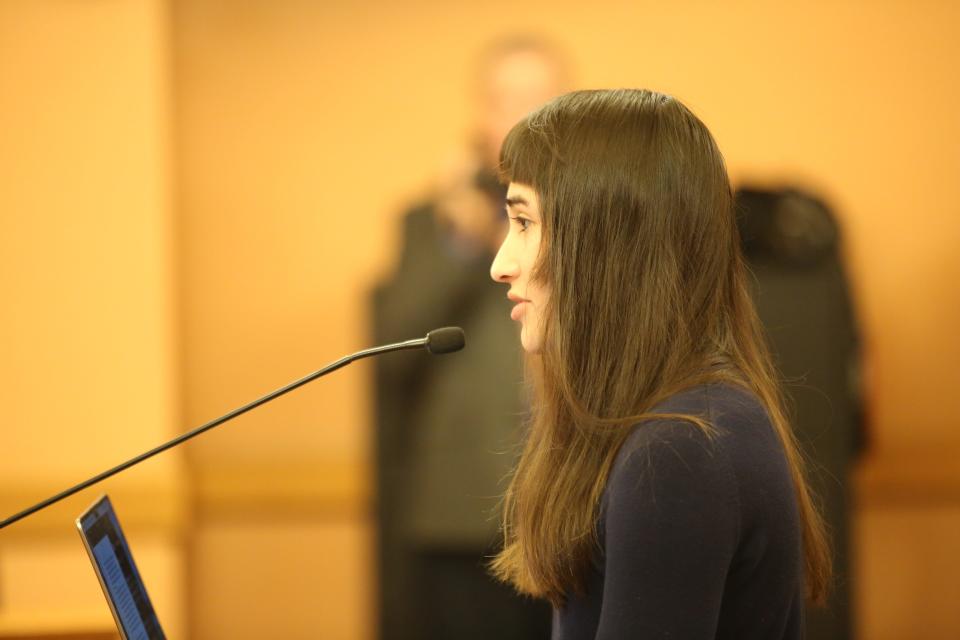
"This is an individual choice between a patient, there is parental involvement and the physician," Dena Hubbard, of the Kansas Chapter of the American Academy of Pediatrics, told lawmakers. "There is absolutely no place for politics or legislation in that patient-doctor relationship."
Lawmakers heard from a handful of doctors and two transgender individuals who oppose the care, however. Chloe Cole and Prisha Mosley said they regretted their decisions to transition and undergo gender re-assignment surgery and that they felt forced into the procedures.
Mosley, who is from North Carolina and has testified in other states considering the same legislation, said the care was "self-mutilation" and exacerbated her feelings of suicidal ideation and has resulted in long-standing pain where her breasts were removed.
"Doctors have abandoned me," she said. "I am left alone with a ruined endocrine system and chronic pain. I want to save children from experiencing this pain as they chase a temporary euphoria promised by doctors selling snake oil."
Research has found that a small minority of individuals, less than 1%, regret their decision to transition or undergo gender-affirming care and some treatments, such as puberty blockers, are reversible.
"Everyone's story is important, and they have a right to tell it," said Beth Oller, a Stockton physician who provides gender-affirming care. "However, the voices that you as Kansas legislators need to be listening to are those of your constituents. Anyone who does this work can tell you that while there are rare stories that are heartbreaking, these are in no way the norm."
Will anti-trans bills pass in Kansas this session?
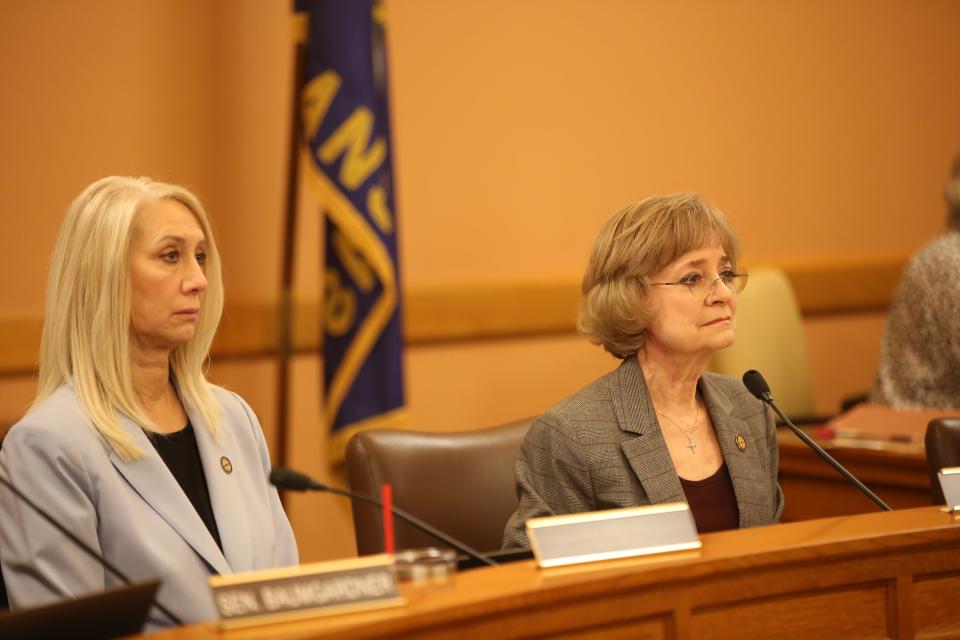
Legislators were also set to consider a "women's bill of rights" Wednesday, legislation which would implicate both transgender youths and adults.
The bill, which is a near carbon copy of model legislation advocated by a triumvirate of right-wing groups, would define "woman" in state statute as a person who was deemed to be female at birth and it would require individuals use public facilities, such as restrooms, locker rooms and detention centers, in line with their biological sex.
It also would mandate government statisticians count individuals based on their biological sex and would prevent public documents, such as birth certificates, from being changed to reflect an individual's gender identity.
Erickson, who requested the bill's introduction, insisted it had nothing to do with transgender rights.
"I think it is just to clarify," she said. "There just is so much discussion around this issue right now and just to have a definitive definition of male and female as it relates to the law, nothing to do with how people want to live their life."
Byers, the former legislator, argued the bill is tantamount to erasing transgender, gender nonbinary and intersex individuals from the public sphere, even though those words are not formally used in the bill.
"To me, it is not very veiled who it is attacking," she said.
Kelly's veto pen is all but assured on all of the bills.
While her campaign raised eyebrows last fall for an ad appearing to claim she did not support transgender athletes in women's sports, it later clarified that the governor opposed adult men competing in girls' athletics, something which does not occur.
More:What does Gov. Laura Kelly think of a Kansas transgender athlete ban? New ad muddies waters.
When asked about the series of bill hearings this week, Kelly said the rhetoric being espoused in the Statehouse "breaks my heart."
"It's painful," she told reporters Tuesday. "And I really wish that folks in the legislature recognize that we be a bit more empathetic. Cut it out. This is an ideological statement has nothing to do with the welfare of the state of Kansas and doing nothing in the interest of their constituents. It just needs to stop."
But LGBT advocates are facing a different dynamic in the Legislature than in years past. The Kansas House, which was relied upon in 2022 to sustain Kelly's veto on the transgender athletes ban, got more conservative. Three Republicans who joined Democrats to oppose the legislation were either voted out of office or retired.
And Byers will no longer be in the Statehouse, opting not to run for re-election because of health problems in her extended family. While she said she was confident there would be voices standing up to oppose the bills, she noted there was undoubtedly something different about 2023.
"Not having someone in the halls every day that represents physically the group that's being marginalized further and further with this legislation," Byers said. "I can't imagine that it doesn't have that sense of emboldenment for those people on the other side saying, 'Well, there's nobody here to stop us.'"
This article originally appeared on Topeka Capital-Journal: Kansas LGBT groups decry ban on trans athletes, gender-affirming care

